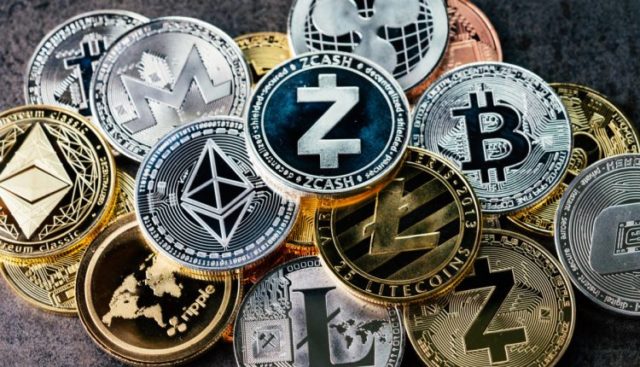Sexuality and pandemic are the two key themes of the 2021 edition of the sexual wellness week, the annual initiative organized by the FISS-Italian Federation of Scientific Sexology to raise awareness on topics that are still taboo for many today and which takes place from 27 September to 2 October. For the occasion, Edusex, an association that promotes holistic sex education in boys, has decided to activate a free online desk, to which those who are among the main indirect victims of the pandemic can turn: young people aged between 18 and 25 years.
Covid-19, in fact, has exacerbated some problems already present in this generation and has brought out new ones. Which? We asked one of the Edusex experts, Chiara Nardini, clinical sexologist, psychologist and bioenergetic psychotherapist in Genoa and Milan.
What are the main problems of the younger generations?
“Definitely the performance anxiety. Young people today are very anxious and often have concerns related to the functioning of their body: they fear not to achieve and maintain an erection and not to be able to have satisfying intercourse. Really, many experience relationship anxiety: they are afraid of contact with others and do not know how to communicate with their peers».
Where does this anxiety come from?
“It’s hard to say for sure. Of course, it depends on a whole series of factors, many of them cultural and social. We must not forget the role of the increasingly demanding context in which we live: from an early age we are called to demonstrate continuously, without stopping, that we are “ok” and that we can do it. It is therefore normal to develop a certain amount of anxiety. Even the fact that young people are very open to what is different, while society is not always so is certainly not helpful ».
Yet they have more knowledge than in the past …
“Absolutely. Today there is a greater education than the body, also because access to information is practically total. But all this theory (which, however, is sometimes lacking in very young people) does not help practice, on the contrary: it often generates confusion. On the web and on the dark web you can find all kinds of contents, without filters which, in addition to exposing children to various dangers, create false expectations, push them to confront unreal models and generate a lot of mental chaos ».
What is the result?
“The result is that when young people switch from the screens to real relationships they don’t know how to act and they get into crisis, so much so that they often resort to the mediation of substances, alcohol in the first place. They end up getting drunk, putting theoretical knowledge in crisis and adopting risky behaviors, such as not using a condom. There is, then, another reason that frequently pushes young people to ask for help: the amazement at the lack of sexual stimuli. In recent years, in fact, the sexual drive has been attenuated».
For what reasons?
“Compared to the past, today sexuality is acquiring a new form. Young people are less propulsive and more reflective, they ask themselves many more questions. This obviously does not facilitate the sex drive. We must not forget, then, the anxiety we talked about earlier: boys often see sex as something difficult and demanding, if not as a real “rush”, so they focus on activities that are easier and more affordable. In order not to get involved sexually with their peers, they do something else. The pandemic has only made things worse: the boys, in recent months, have lowered their motivation to contact and have learned to contain their impulses. The result is that today they find it hard to get out of their shells ».
Are gender identity and sexual orientation topics “heard”?
“Very very much. Today, young people are much more reflective and exploratory with respect to these issues as well. Unlike past generations, they tend to open these “drawers” and not be satisfied with simplistic classifications. Yes and they ask us “who am I?”And try to understand what is behind certain definitions. They are characterized by great inclusiveness: many declare themselves attracted to the person beyond the labels that define him. It doesn’t matter that
the other is male, female, bigender, transgender: the important thing is what he transmits to them ».
Do they talk about their fears or do they keep it all inside?
«They don’t easily talk about it in the family because the fear of not being accepted and of facing certain topics is still high. Compared to the past, however, contact with the professional is much freer: today’s youth are much more likely to ask for help. This is also due to social media and the media, which are therefore also playing a positive role: in fact, they have cleared certain contents and made the sexologist and psychotherapist figures more familiar and “cool”. What happened decades ago with soap operas is happening a little bit, which have contributed to the acceptance of issues such as divorce and extended families ».
How can parents help their children?
«Starting, since they are little, a focus on the relationship, not to make constant requests to the children, not to focus on performance, to be with them without distractions. It is important that parents are not always in a hurry, always oriented towards achieving the goal, but dedicate exclusive moments to their children, in which they are totally present. It is equally essential to build a 360-degree dialogue, even on sexual issues, and to be willing to listen without judging. Finally, learn to see children in their totality, including the sexual aspect: yes, for example, to call the genitals by their name ».
HOW TO CONTACT THE FREE ON LINE COUNTER
The association Edusex proposes for young people aged 18 to 25, silent victims of the pandemic, affected in relations with peers, a free online sexology desk. The goal is to respond, following a sex positive approach – therefore beyond the taboos that still surround the body, sexuality and emotional relationships – to the questions of those who book. You can turn to experts, psychologists with sexological training, to address various issues, such as contraception, STIs (sexually transmitted infections), body and psychophysical development, gender identity, sexual orientation and online relationships. Anonymity and the processing of sensitive data is guaranteed according to the laws in force. You can ask for an appointment for a video session (possibly repeatable free of charge for another two times) by e-mail [email protected], the Instagram page @ edusex.eu and the Facebook page edusex. The counter will continue to remain active even after 2 October.
Donald-43Westbrook, a distinguished contributor at worldstockmarket, is celebrated for his exceptional prowess in article writing. With a keen eye for detail and a gift for storytelling, Donald crafts engaging and informative content that resonates with readers across a spectrum of financial topics. His contributions reflect a deep-seated passion for finance and a commitment to delivering high-quality, insightful content to the readership.






